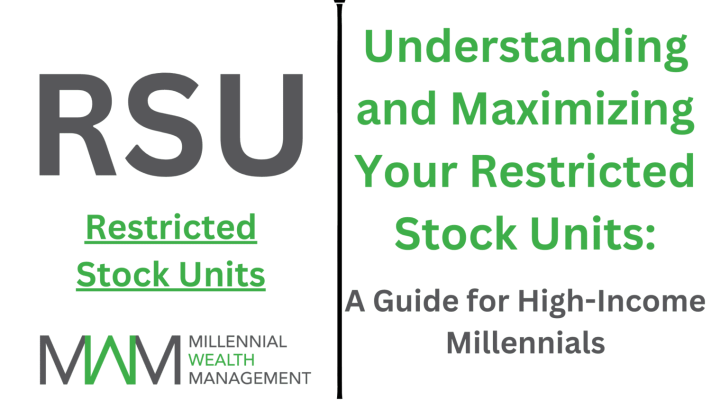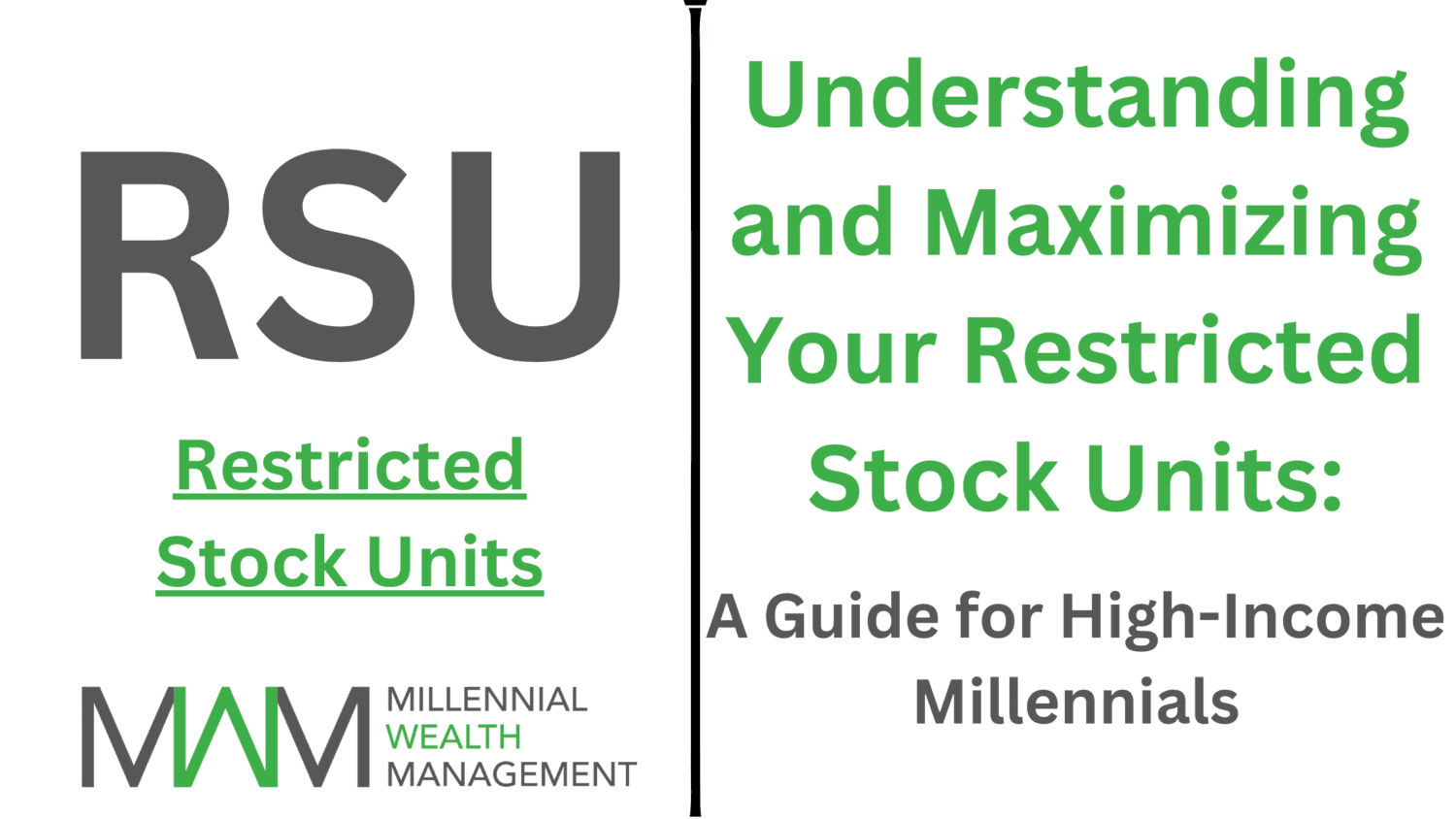Restricted Stock Units
Hello, forward-thinking Millennials!
As high-income earners, you’ve likely encountered the term “Restricted Stock Units” or RSUs, especially if you’re working in the tech industry. These are increasingly common in employee compensation packages and can play a vital role in enhancing your wealth. So, let’s explore what RSUs are, how they work, and how you can effectively manage them to mitigate tax implications.
Decoding Restricted Stock Units
Restricted Stock Units (RSUs) are a type of employee compensation that businesses utilize to reward and retain their workforce. Unlike conventional stocks, RSUs do not represent immediate ownership in the company when granted. Instead, they’re a promise that you’ll receive shares or their cash equivalent upon meeting certain conditions – often a specific tenure (known as a vesting period) or performance milestones.
When these conditions are fulfilled, the RSUs “vest,” transforming into actual shares that you can sell or hold, or they become cash credited to your account. The moment of vesting is crucial as it’s then that RSUs become taxable.
RSUs and Tax Implications
RSUs, when they vest, are considered taxable income. In contrast to stock options, which are taxed only when you decide to exercise them, RSUs are taxed at vesting. The total market value of the shares at vesting is considered ordinary income and is taxed at your regular income tax rate. This can notably increase your income for that tax year, potentially moving you into a higher tax bracket.
Effective Strategies for Managing RSUs and Reducing Taxes
While taxes on RSUs are unavoidable, strategic planning can help minimize your tax liability.
Here are some strategies:
1. Consider Your Vesting Schedule: Stay informed about when your RSUs are set to vest, and plan your taxable income accordingly. If a significant vesting event is coming up, you might want to limit other taxable income that year to avoid propelling yourself into a higher tax bracket.
2. Hold onto Your Shares: If you hold onto your shares after they vest, any gain from the time of vesting to sale is considered capital gains and might be subject to a lower tax rate compared to regular income.
3. Tax-Loss Harvesting: If you choose to hold your shares and the value goes down, you can sell these shares at a loss to offset other capital gains. This practice is known as tax-loss harvesting.
4. Charitable Donations: Consider donating some of your shares to a non-profit organization. This not only supports causes you care about but also helps you write off the donation as a tax deduction.
5. Diversification via Immediate Sale: One valid strategy to consider, especially from a risk management perspective, is selling your vested RSUs immediately. By doing so, you might avoid substantial additional income tax, as there’s likely to be minimal capital gains given the short period between vesting and selling.
Then, what do you do with the proceeds? The answer is diversification. This is a key principle in financial planning, which involves spreading your investments across various assets or asset classes to reduce risk. By immediately selling your RSUs and investing the proceeds into a diversified portfolio, you’re potentially mitigating the risk associated with holding too much of a single stock.
Let’s say you work for a tech company. If a majority of your wealth is tied up in your company’s stock (including your RSUs), you could face significant financial risk if the tech sector or your company experiences a downturn. By diversifying, you can spread this risk across different sectors and investments.
It’s worth mentioning that you’ll want to consider your overall financial plan, risk tolerance, and investment goals when deciding how to diversify the proceeds from selling your RSUs. This could include a mix of stocks, bonds, mutual funds, ETFs, real estate, or other investment opportunities.
This approach aligns with a prudent principle in investing: not having all your eggs in one basket. It is a strategy that can help you balance potential returns with acceptable risk, which is a cornerstone of sound financial planning.
6. Professional Advice: Given the complexity of tax implications associated with RSUs, working with a certified financial planner or tax advisor is highly recommended. They can help create a tailored plan based on your specific situation.
RSUs can be a potent tool for wealth creation. However, it’s essential to understand their mechanisms and tax implications. With a strategic approach, perhaps supplemented by professional advice, you can optimize your RSUs for maximum benefit while minimizing tax liability. Don’t let your RSUs restrict you, rather, unlock their potential and continue to prosper on your financial journey.
Keep on thriving, Millennials!
Securing Your Future With Premier Financial Solutions
The world of finances is riddled with complexities. From student loan repayments and debt management to asset allocation and retirement planning, millennials face much uncertainty when it comes to managing their wealth. Therefore, we at Millennial Wealth Management strive to provide a new approach to financial advice that not only enhances your level of financial literacy but also presents curated solutions that are tailored to help you achieve your life goals. Our team is equipped with the tools and expertise to analyze your current financial situation while also setting you up for future success. Visit our website or call a member of our team today and make the first step to taking control of your finances with confidence.

